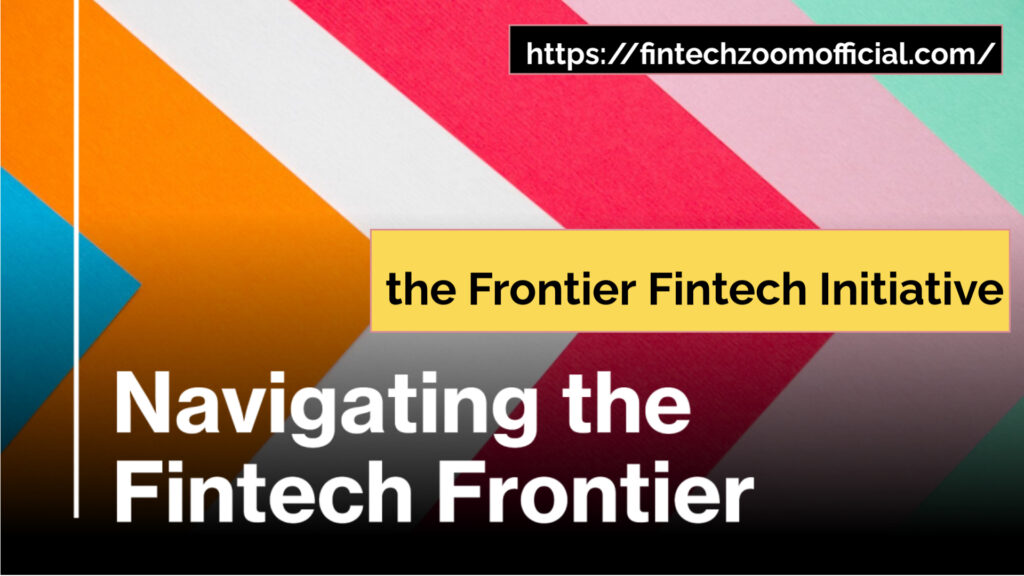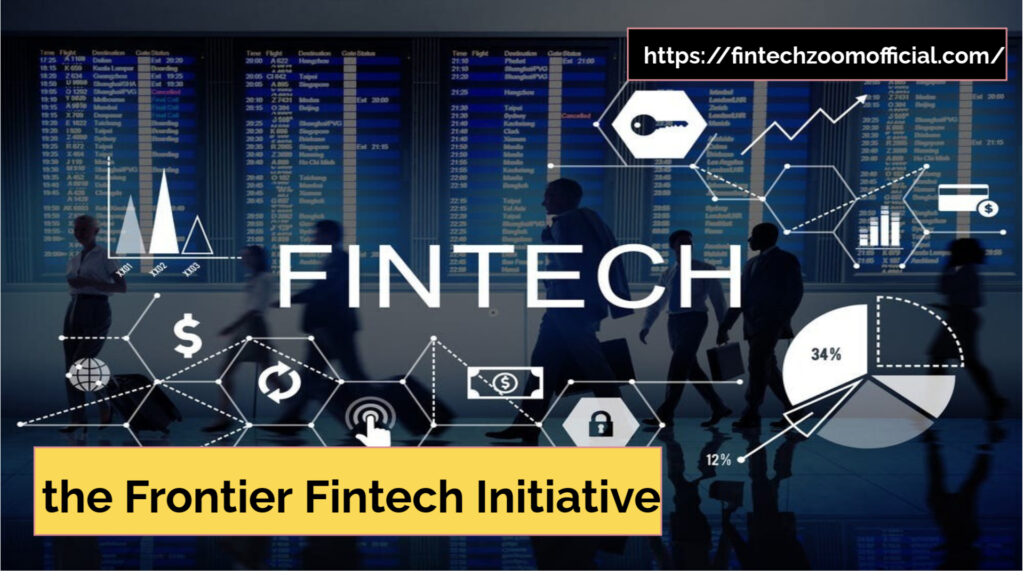FintechZoom.com | Your Gateway to Financial Insights
- Home
-
Stocks Updates
- News
-
Finance Tools
- Crypto Profit Calculator
- Savings Goal Calculator
- Compound Interest Calculator
- Currency Converter
- Tax Calculator
- Retirement Planner
- Net Worth Tracker
- Investment Portfolio Calculator
- Credit Card Payoff Calculator
- Monthly Budget Planner
- Mortgage Affordability Calculator
- Debt-to-Income (DTI) Ratio Calculator
- Fuel Cost Calculator
- Stock Return Calculator
- Loan EMI Calculator
- Latest Blogs
- Jobs Updates
The Revolutionary Benefits of the Frontier Fintech Initiative on the Global Financial Ecosystem in 2024.

Table of Contents
Introduction
The Frontier Fintech Initiative is revolutionizing the way financial services are conceptualized, delivered, and consumed. Techno-pioneering startups are disrupting the system that has been a cornerstone of established banks and introducing innovatory financial solutions tailored to a rapidly changing marketplace. This article delves into the changes happening in the world’s financial ecosystem, keeping in mind innovations and challenges and future trends forming this change.
Table of Contents
- Table of Contents
- Introduction
- The Rise of FinTech Startups: The Frontier Fintech Initiative’s Impact
- The Frontier Fintech Initiative innovations
- Challenges that FinTech Companies Face
- The Role of Venture Capital in FinTech
- Consumer Behavior and FinTech Adoption
- Regulatory Landscape for FinTech
- The Future of Banking: Digital Transformation
- Financial Inclusion through Technology
- Cyber security in FinTech
- Women in FinTech: Empowerment and Leadership
- Case Studies: Successful FinTech Implementations
- Collaboration Between Banks and FinTechs
- COVID-19 Impact on FinTech Development
- Thriving Markets and Global Trends in The Frontier Fintech Initiative
- Frequently Asked QuestionsWhat is FinTech?
- How do start-ups affect traditional banks?
- What are the largest challenges facing FinTech companies?
- Conclusion
FinTech landscape overview
Role of technological innovation in financial services
How start-ups are changing the game.

The Rise of FinTech Startups: The Frontier Fintech Initiative’s Impact
The adoption of FinTech start-ups has revolutionized the financial services sector, offering bespoke digital financial products with a focus on convenience, speed, and accessibility. These start-ups focus on mobile banking, peer-to-peer lending, and crowd funding, which are deemed alternative services to mainstream offers.
FinTech successful ventures are agile, customer-centric, and opportune to seize top-notch technological opportunities.
Companies like Stripe and Square have disrupted the payment solution market and made transactions easier across markets.
More than $210 billion has been invested in the FinTech industry globally in 2021 alone, and something like that is a testament to the role of venture capital in the expansion of successful startups.
The Frontier Fintech Initiative innovations
Indeed, FinTech innovations are the backbone of the industry’s transformation. Innovations, such as blockchain technology, AI in finance, and robo-advising, are becoming more mainstream for modern financial service provision.
• Blockchain has brought integrity and security to digital banking solutions through the creation of decentralized systems that help in the reduction of fraud.
• AI and machine learning forms part of wealth management, offering robo-advised and automated advice and enhanced management of risk.
• The AI in finance market will grow to $26.67 billion by 2026. This reflects the importance of AI in the financial sector’s future.
Challenges that FinTech Companies Face
Although the FinTech sector has grown, it is still facing vast challenges, mainly related to regulatory issues and completion from established banks.
New regulations such as the GDPR in Europe expand the boundaries of data protection, putting a massive hurdle for the startups to be adopted in finance.
Competitiveness is high with traditional financial institutions, even more so as banks embrace digital transformation to remain competitive.
Cyber threats pose a significant risk to the FinTech industry, with over 74% of companies experiencing hacking attempts. This underscores the necessity for robust and advanced security measures to safeguard sensitive financial information and ensure trust in the digital financial sector.
The Role of Venture Capital in FinTech
| Aspect | Details |
| Key Investors | Sequoia Capital, Accel Partners |
| Role of Venture Capitals | Driving innovation in FinTech startups through investments |
| Investment in 2021 | Over $100 billion invested globally in FinTech startups |
| Investor Confidence | High confidence in the sector, indicated by large investment volumes |
| Scope for Future Investments | Cryptocurrency, mobile banking, payment solutions |
Consumer Behavior and FinTech Adoption
Consumer behavior is the main catalyst of adoption for FinTech. With new digital financial systems made easy to access, the consumers look forward to adopting innovations which offer them convenience coupled with lower costs and give better experience.
In the light of economic inequality and no access to finance, demand for services that will cater to the needs of this group has exploded.
Emerging markets are leading efforts towards digital wallets and mobile banking platforms.

Regulatory Landscape for FinTech
The most challenging task for FinTech companies has been to maneuver through the regulatory landscape. Regulations vary widely between regions, but it is a critical function in maintaining the integrity of the financial system. The Frontier Fintech Initiative aims to simplify this complexity, providing guidance and support to help companies navigate these regulatory challenges.
Consumer Financial Protection Bureau is considered the chief regulator for financial technology in the United States.
A legislation like the PSD2 directive which compelled the companies to enhance data security and a new open banking framework in Europe was a recent legislation.
The Future of Banking: Digital Transformation
The future of banking depends much on its response to the need for transformation in the digital world. Increasingly, established banks are coming up with strategies to match FinTech innovation. This is going to catapult them to new heights as they further enhance their products through AI, blockchain, and cloud computing.
Banks are forming strategic collaborations with FinTech startups, whereas institutions such as JP Morgan have partnered with tech-driven startups to provide unique banking solutions.
Digital banking solutions have already led to 25% cost savings in operations for a large majority of financial organizations. These savings highlight the efficiency and impact that digital transformation is having across the financial sector, streamlining processes and reducing operational expenses.
Financial Inclusion through Technology
One of the most impactful ways in whichThe Frontier Fintech Initiative is contributing is in fulfilling financial inclusion, especially in less developed areas.
Program such as mobile banking for Africa is providing access to finances among millions of people who were not previously included in the formal system of finance.
With improvements in digital currencies and peer-to-peer lending websites, financial services limitation is now an alternative to available options.
Cyber security in FinTech
Due to the growth of the digital financial systems, there has been a greater demand on FinTech companies for security.
Some of these are data breaches, ransomware, and identity theft.
Concerns about those can be handled by investment in automated the Frontier Fintech Initiative solution through AI, for a detection and security relief.
Women in FinTech: Empowerment and Leadership
Women in FinTech are pioneering areas for innovation and entrepreneurship in FinTech.
In fact, innovators such as Anne Boden, founder of Starling Bank, have dramatically proven the contributions women make towards innovation in banking.
Programs like FemTech are opening doors for feminine entrepreneurs in financial technology and promoting greater diversity for females in an otherwise patriarchal industry.
Case Studies: Successful FinTech Implementations
Many FinTech solutions have already significantly impacted the global market.
Pay solutions in China were revolutionized by Ant Financial, and PayPal is yet to be beaten in the global digital banking solutions.
Such companies prove the level of disruption possible by the Frontier Fintech Initiative innovations into the traditional world-wide financial system.
Collaboration Between Banks and FinTechs
Mutual collaboration of the traditional banks and the Frontier Fintech Initiative firms is required in establishing innovation.
Examples include partnerships such as BBVA and Atom Bank that help them deliver new innovative digital products.
such collaborations integrate the capabilities of mature financial institutions with the flexibility of new venture houses to develop new services.
COVID-19 Impact on FinTech Development
The COVID-19 pandemic speeded up the adoption of digital financial systems. In particular, there is an unprecedented rise in mobile banking and digital currencies.
Consumer behavior shifted towards contactless payments, and the innovation of fintech enabled businesses to function even in lockdown times.
The Frontier Fintech Initiative industry is expected to maintain its exponential growth beyond the post-pandemic era, with market value projected to surpass $310 billion by 2025. This continued growth highlights the sector’s resilience and its increasing importance in the global economy.
Thriving Markets and Global Trends in The Frontier Fintech Initiative
India and Brazil are far ahead compared to others while adopting FinTech solutions in respect of, for example, financial inclusion and payment solutions.
• These geographies have seen a rapid spurt of digital platforms to provide access to finance for erstwhile underserved populations.
• Developed markets, on the other hand, talk more about sophisticated tools in wealth management and robo-advising.

Frequently Asked Questions
What is FinTech?
FinTech would be defined as the overall use of financial technology to improve and automate financial services from as simple a thing as cryptocurrency to fully-fledged digital banking solutions.
How do start-ups affect traditional banks?
Startups introduce new solutions that disrupt traditional banking, often starting with customer experience, to minimize costs in operations.
What are the largest challenges facing FinTech companies?
The three biggest challenges that FinTech businesses face include: Regulatory compliance, Cyber threats, and competition from existing financial institutions.
Conclusion
The Frontier Fintech Initiative is ushering in unprecedented change into the global financial ecosystem, and its impact will only continue to soar in the future. With further innovation and strategic collaboration between the new kids on the block and traditional players, the future of finance will surely look increasingly digital, inclusive, and secure.
Also read this blog :HOW FINTECHZOOM CHEVRON STOCK WILL TRANSFORM VITALITY INVESTMENTS IN 2024? — LIVE UPDATE














No Comments